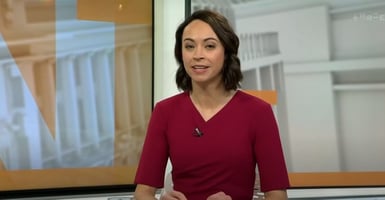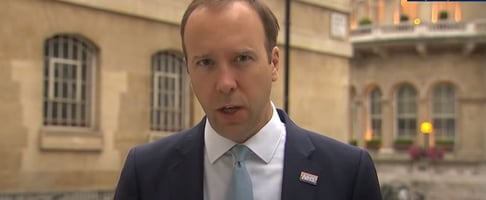It’s that time of year where much of the news coverage is filled by exam results.
“What do you think?”
On the face of it, it is a simple enough question.
But for many media spokespeople, it appears particularly unwelcome and they continually stumble over attempts from journalists to gain a personal opinion.
The latest example of this came when Ruth Davies, president of the National Association of Head Teachers, appeared on LBC and was asked whether she thought teachers should wear face coverings or face masks in the classroom.
Here’s the key exchange she had with presenter Nick Ferrari:
Ferrari: “What do you think?”
Davies: “What I think is that schools need to be made safe places…”
Ferrari: “But do you think you should wear masks?”
Davies: “As I said, this is a health matter and this is what we are saying…”
Ferrari: “But Ruth, you are president of the National Association of Head Teachers – you must have a view.”
Davies: “I have a view...”
Ferrari: “Ah, so what is your view?”
Davies: “My view is that schools need to return safely…”
Ferrari: “No, no, no – as regards masks?”
Davies: “The detail of how we return needs to be given by the medical experts.”
And so it went on, with both presenter and interviewee becoming increasingly frustrated and it became a messy interview that will be remembered for what wasn’t said and not the message Ms Davies had hoped to get across.
Now, this is a complicated and controversial issue. But, as we discuss on our media training courses, personal questions are often asked about the complex and can help to create that all-important human angle journalists look for.
So, how should spokespeople handle these questions that ask for a personal view?
Preparation
The key, as ever, is preparation.
Often interviewees have their company line and their key message clear in their heads. They’ve practised saying them, have thought about the examples they can use to support them and they’ve spent time anticipating difficult questions.
But they haven’t spent time considering how the subject could be turned on them and focus on their own experiences, views or attitudes.
“Would you wear a facemask?” or “What’s your view on facemasks” are pretty obvious questions in the interview we have highlighted.
But let’s give you a couple of other examples. Let’s say you are being interviewed about finance. Here you could easily face questions about your savings, investments and spending habits.
If you are from a housing association, you could face questions about whether you would live in a particular development. If you work for a big energy company, you might be asked how you would feel about having a power station or wind farm near your home.
Once you have identified – alongside your comms team - how the subject could be turned on to your personal opinion, you need to plan how you would respond to it – blurting out an answer or developing one while you are speaking is particularly risky.
Bridging
One thing you don’t want to do when faced with a personal question is to create the impression you are trying to avoid it.
This is why the headteacher interview became stuck. Mr Ferrari felt his question was being ignored and that Ms Davies was uncomfortable. And that meant he was going to pursue it and it became a distraction.
If you don’t want to offer a personal view or discuss a personal experience, the key is to use the bridging media training technique to briefly answer, or at least acknowledge the question, and then steer the conversation to your message.
So, Ms Davies could say something along the lines of, “I haven’t yet made up my mind up about facemasks, but the key thing is…” and then get to the message she had wanted to get across.
Homework
We’ve said this before in this media training blog, but spending time knowing who you will be talking to and the sort of questions they ask is crucial.
An interview with Mr Ferrari will always be challenging and he has been at the centre of some infamous interviews in recent years.
And from those interviews, it is pretty clear that if he spots a weakness or feels a spokesperson is uncomfortable with a particular line of questioning, he will pursue it.
But this doesn’t just apply to the LBC presenter. Whoever you are about to be interviewed by, find some examples of their recent interviews and look at the types of questions they ask. Also, look at their social media accounts and see what issues they discuss and cover.
Get your media interview homework off to the best start by downloading your copy of our free media interview preparation eBook.
Media First are media and communications training specialists with over 35 years of experience. We have a team of trainers, each with decades of experience working as journalists, presenters, communications coaches and media trainers.
Subscribe here to be among the first to receive our blog.




